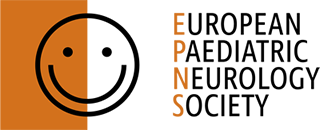European reference networks (ERNs) help professionals and centres of expertise in different countries to share knowledge.
ERNs:
- apply EU criteria to tackle rare diseases requiring specialised care
- serve as research and knowledge centres treating patients from other EU countries
- ensure the availability of treatment facilities where necessary
The first ERNs were launched in March 2017, involving more than 900 highly-specialised healthcare units from over 300 hospitals in 26 EU countries. working on a range of thematic issues. The focus of European Reference Networks for rare diseases is to improve clinical care and expertise in Europe and to promote collaboration between clinical centres. Here at the EPNS it is our aim to ensure that childhood neurological disorders are represented in the relevant networks and consequently many EPNS members and representatives from the EPNS board are involved in one or more ERNs, either as part of the ERN board or as a specialised centre. This is an important scheme for the EPNS and we welcome feedback from EPNS members who participate in the ERNs.
The EPNS is delighted to have a Memorandum of Understanding with the following 6 ERNs which formalises our fruitful collaboration:
ERN EpiCARE: European Reference Network on epilepsy (Website) and ERN_EpiCare webinars
- EPNS representative: Professor Lieven Lagae
ERN ITHACA: European Reference Network on congenital malformations and rare intellectual disability (Website)
- EPNS representative: Dr Kathleen Gorman
MetabERN: European Reference Network on hereditary metabolic disorders (Website)
- EPNS representative: Professor Barbara Plecko
ERN NMD: European Reference Network on neuromuscular diseases (Website)
- EPNS representative: Professor Francesco Muntoni
ERN rita: care of patients with Rare Immunological Disorders (Website)
- EPNS representative: Professor Deiva Kumaran
ERN-RND: European Reference Network on neurological diseases (Website) and ERN_RND webinars
- EPNS representative: Dr Kathleen Gorman
In addition, the EPNS enjoys collaborations with the following ERNS:
ERN Endo: European Reference Network on endocrine conditions (Website)
- EPNS representative: Professor Dana Craiu
ERN EYE: European Reference Network on eye diseases (Website)
- EPNS representative: Professor Agnese Suppiej
ERN Paedcan: European Reference Network on Paediatric Oncology (Website)
- EPNS representative: Professor Dilek Yalnizoglu
